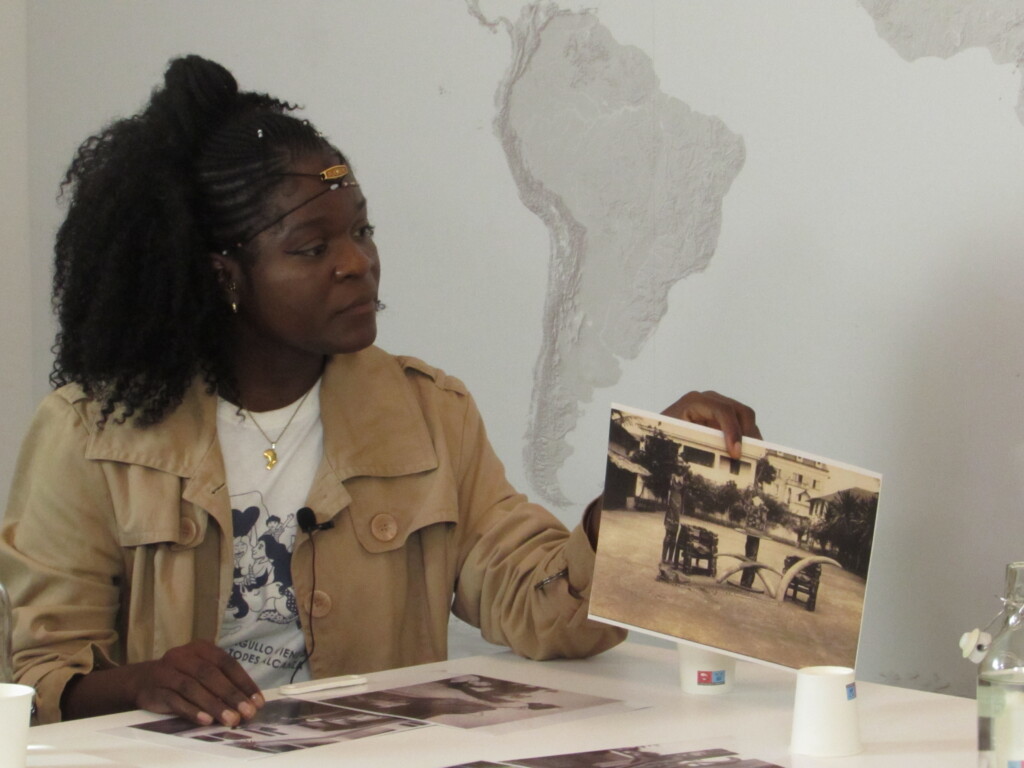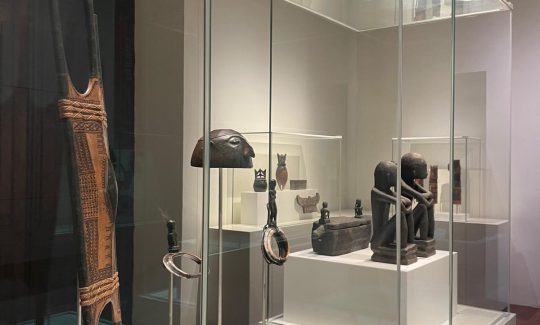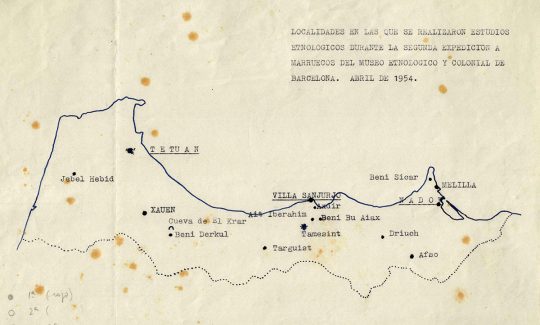The article L’art espoliat a les colònies, als museus catalans (Art plundered in the colonies, in Catalan museums), by journalist Carina Filella, focuses on the work that has been carried out to identify and document pieces from the former colonies of Morocco, the Philippines and Equatorial Guinea that are now part of the collections of Catalan museums.
The report includes statements from three of the researchers in the program: Laida Memba, who describes the career of figures such as Martínez de la Escalera and has a more extensive interview: “Es nega el dret fonamental a la pròpia història a tot un poble”. (The fundamental right to one’s own history is denied to an entire people). The article also contains statements from Àlex Tejero, who presents the case of Philippine heritage and its tracing of military and ritual objects, and Alberto López, who analyzes the role of scientific expeditions and the forced use of local models in colonial contexts.
It also highlights the importance of promoting policies of historical reparation and transparency in the origin of collections, as well as the future exhibition Who Owns History?, curated by Celeste Muñoz, Alba Valenciano and Laida Memba, which will be inaugurated in October and will tour various libraries in Catalonia.
You can read the full article at L’art espoliat a les colònies, als museus catalans
You can read the interview with Laida Memba in “Es nega el dret fonamental a la pròpia història a tot un poble”



